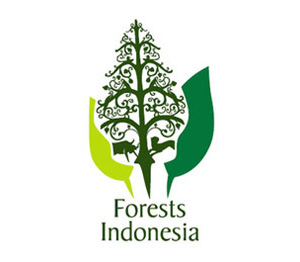Forests Indonesia: Alternative futures to meet demands for food, fibre, fuel and REDD+
The Center for International Forestry Research (CIFOR), in association with leading business groups, NGOs, development agencies, and government ministries, convened a one-day conference entitled Forests Indonesia: Alternative futures to meet demands for food, fibre, fuel and REDD+ on September 27, 2011 at the Shangri-La Hotel in Jakarta, Indonesia. The event provided a platform for 1000 leaders of all stakeholder groups to discuss the challenges and opportunities faced by the country in the sustainable use of its forests.
The following description is from CIFOR's website:
Indonesia is one of the world's largest emitters of greenhouse gases, most of which from the forestry sector. Globally, international institutions, governments and scientists have come to agreement that financing schemes under Reducing Emissions from Deforestation and Forest Degradation and enhancing carbon stocks, or REDD+, hold the greatest promise for combating climate change in the short term. Against this backdrop, Indonesia's President Susilo Bambang Yudhoyono has pledged to reduce emissions by 26% from business-as-usual levels by 2020 and by 41% if assisted with outside funding.
However, competing demands for national forest lands from agriculture, mining, pulp and paper and other development objectives have sparked heated debate on how the President's global aspirations to reduce emissions can be achieved. The Government of Indonesia has announced a two-year moratorium on the issuance of new forest concessions, and a segment of the business community has responded with doubt and rejection. In particular, some business leaders complain that the moratorium, combined with conflicting regulations, lacks clarity. Add in pre-existing legal uncertainties, overlapping concessions, and social conflicts over land use, and the result, say businessmen, discourages operations in Indonesia. At the same time, however, a growing number of Indonesian businesses are leaning toward the embrace of a low carbon economy and sustainable resource use. They are waiting for the incentives or proof of business opportunities from this model.
Indeed, there is also growing realization by all stakeholders that current land-use patterns in Indonesia are unsustainable. Even in the absence of the President's call to reduce emissions, there would be many reasons for Indonesia to rethink the conditions under which natural resources extraction is taking place, including local social and environmental impacts. Therefore, an open and honest dialogue on the required policy actions in Indonesia is urgently needed.
The conference featured agenda-setting keynote speakers and a series of engaging forums under two themes:
- Trade and investment: Implications for forests
- REDD+ in transition to a low-carbon future.

Organized by CIFOR in association with leading business groups, NGOs, development agencies and the Government of Indonesia, with co-funding from PROFOR and other funding partners, the event provided a platform for 1000 leaders of all stakeholder groups to discuss the challenges and opportunities faced by Indonesia in the sustainable use of its forests.
CIFOR in association with leading business groups, NGOs, development agencies and the Government of Indonesia.
PROFOR is a funding partner along with the Norwegian Embassy, the UK Climate Change Unit, AusAID and the Climate and Land Use Alliance (CLUA).








